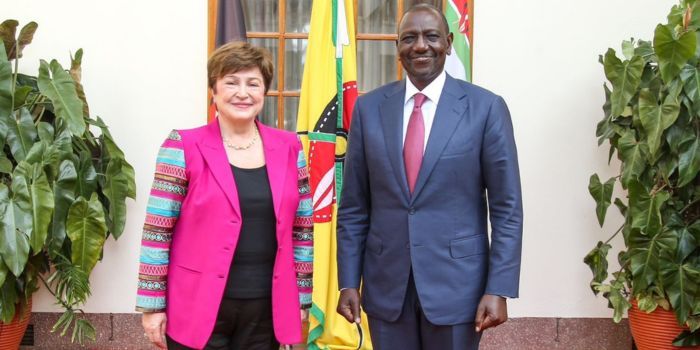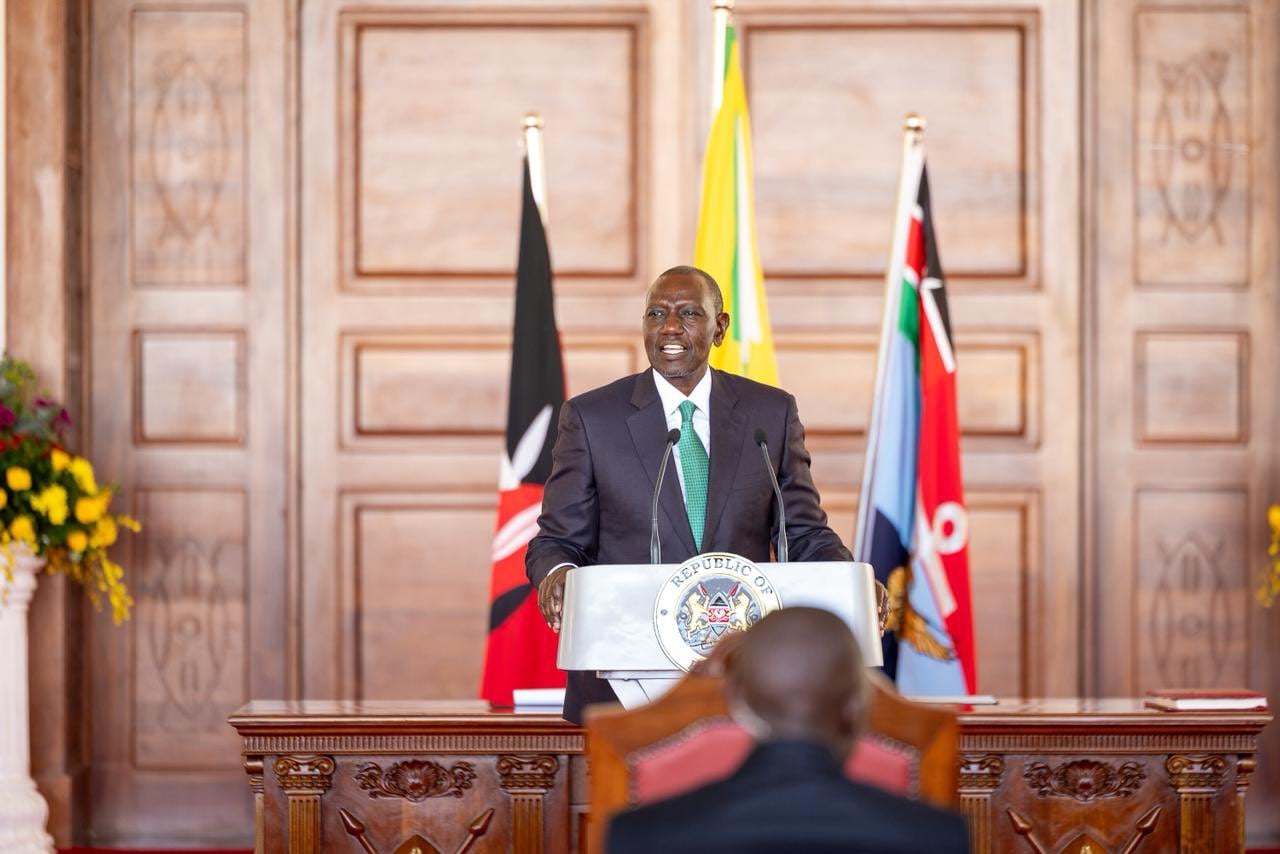The International Monetary Fund has approved approximately a Sh59 billion loan for Kenya under the Extended Fund Facility (EFF) and the Extended Credit Facility (ECF) arrangements.
The Executive Board also approved Kenya’s request for another loan under the Resilience and Sustainability Facility (RSF) of Sh78 billion to support Kenya’s ambitious efforts to build resilience to climate change.
"The EFF/ECF arrangements aim to support Kenya’s program to address debt vulnerabilities, the authorities’ response to the COVID-19 pandemic and global shocks, and to enhance governance and broader economic reforms while safeguarding resources to protect vulnerable groups and address developmental needs," IMF said.
IMF acknowledged that the Kenyan authorities have made good progress in implementing their economic reform program despite facing the worst drought in decades and a challenging external environment.
Read More
.jpg)
The RSF-supported program, IMF added, is expected to further integrate climate-related considerations in macro policies and frameworks by adopting green public financial management and climate-sensitive public investment management reforms, introduce carbon pricing, enhance the effectiveness of Kenya’s existing frameworks to mobilize climate finance, and strengthening disaster risk reduction and management.
Deputy Managing Director and Acting Chair at IMF Antoinette Sayeh, while reacting to the ECF and EFF arrangements continues to support the authorities’ efforts to address emerging challenges to sustain macroeconomic stability and market confidence, promote growth, and advance ongoing reform.
The global finance body cited the approval of the Finance Act 2023 as a major milestone in turning around the economic fortune of the country.
"The authorities' commitment to robust policies to sustain reforms that promote resilient and inclusive growth will support Kenya's positive medium-term prospects," she said.
“The approval of the FY2023/24 Budget and 2023 Finance Act are crucial steps to support ongoing consolidation efforts to reduce debt vulnerabilities while protecting social and development expenditures."
She however said the recent challenges in resource mobilization and elevated uncertainty call for contingency plans that can be quickly deployed to ringfence fiscal performance going forward.
"Tighter financing conditions also require a prudent debt policy and continued efforts to prioritize concessional loans," Sayeh said.
“The Central Bank of Kenya’s (CBK) commitment to a data-dependent policy stance is essential to keep inflation expectations anchored. The CBK should also continue taking appropriate steps to strengthen its reserves position and deepen the FX market while allowing exchange rate flexibility as a shock absorber."





-1771737995.png)



-1772427756.jpg)

